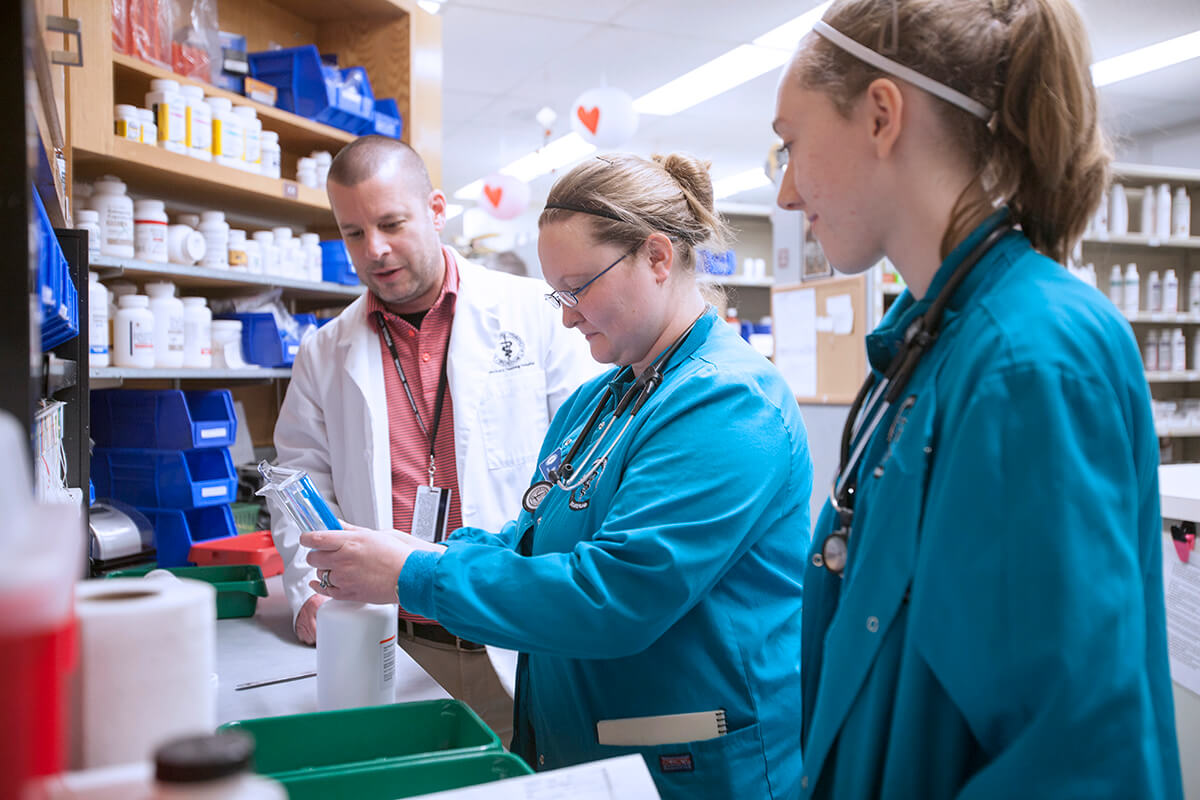
Veterinarians play an important role in addressing the opioid epidemic by prescribing opioids responsibly for the pain management of their patients. The opioid crisis has created challenges related to opioid availability and use by the profession. As of July 1, 2019, all practitioners in Indiana who renew their Controlled Substances Registration (CSR) are required to have completed two hours of continuing education during the previous two years addressing the topic of opioid prescribing and abuse. Many other states across the country are also enacting similar requirements.
For the current Indiana CSR renewal cycle, the deadline for obtaining the required continuing education on opioid prescribing and potential abuse is October 15, 2019. In an effort to help veterinarians fulfill the new requirements to maintain their controlled substances registration, Purdue Veterinary Medicine’s upcoming annual conference September 17-21 will feature three continuing education sessions on opioid prescribing and abuse. The following sessions will be held as part of the Small Animal IV track on Thursday, September 19.
- Dr. Tokiko Kushiro-Banker, Purdue Veterinary Medicine clinical assistant professor of veterinary anesthesiology, will give a talk entitled, “Peri-anesthesia Pain Management: How Can I Treat Pain with the Opioid Shortage?” During the presentation, Dr. Kushiro-Banker will discuss utilizing loco-regional anesthesia and some non-opioid analgesics, as well as some veterinary opioid products to aid in effectively managing pain.
- Melinda “Mindy” Anderson, PharmD, visiting assistant professor of basic medical sciences, will give a presentation entitled, “How the Opioid Crisis Has Influenced Change in Prescribing Laws Impacting Indiana Veterinarians.” She will provide a pharmacist’s perspective on the opioid crisis and explain how prescription drug monitoring programs relate to veterinary prescriptions. Additionally, she will break down the new opioid prescribing laws and explain how they impact veterinarians.
- Dr. Steve Thompson, clinical associate professor of small animal community practice, will round out the morning’s opioid continuing education talks with a lecture on, “The Veterinarian’s Role in Addressing the Opioid Epidemic.” He will address the responsibility of health care providers who administer and prescribe controlled substances to contribute to solutions to the crisis.
Click here to learn more about these lectures in the Small Animal IV track.
The annual Purdue Veterinary Conference is designed to provide continuing education opportunities for the entire veterinary team. Attendees can earn up to 26 hours of continuing education. Content includes Small Animal, Food Animal, Equine, Exotics, Practice Management, Behavior, and topics of interest for Veterinary Technicians. All conference sessions and special events will be held on Purdue’s campus in West Lafayette, Ind. Click here to learn more and register.
